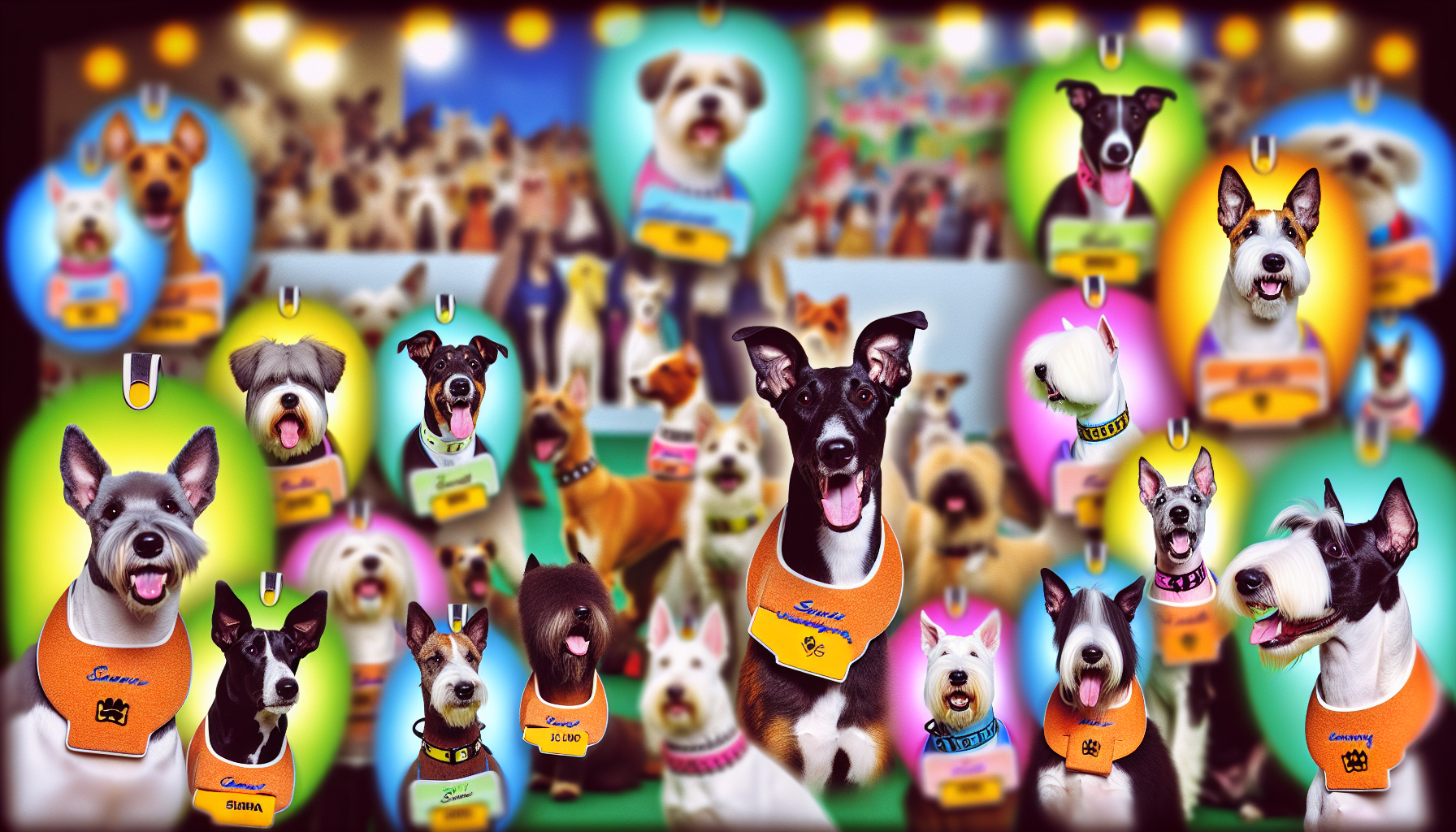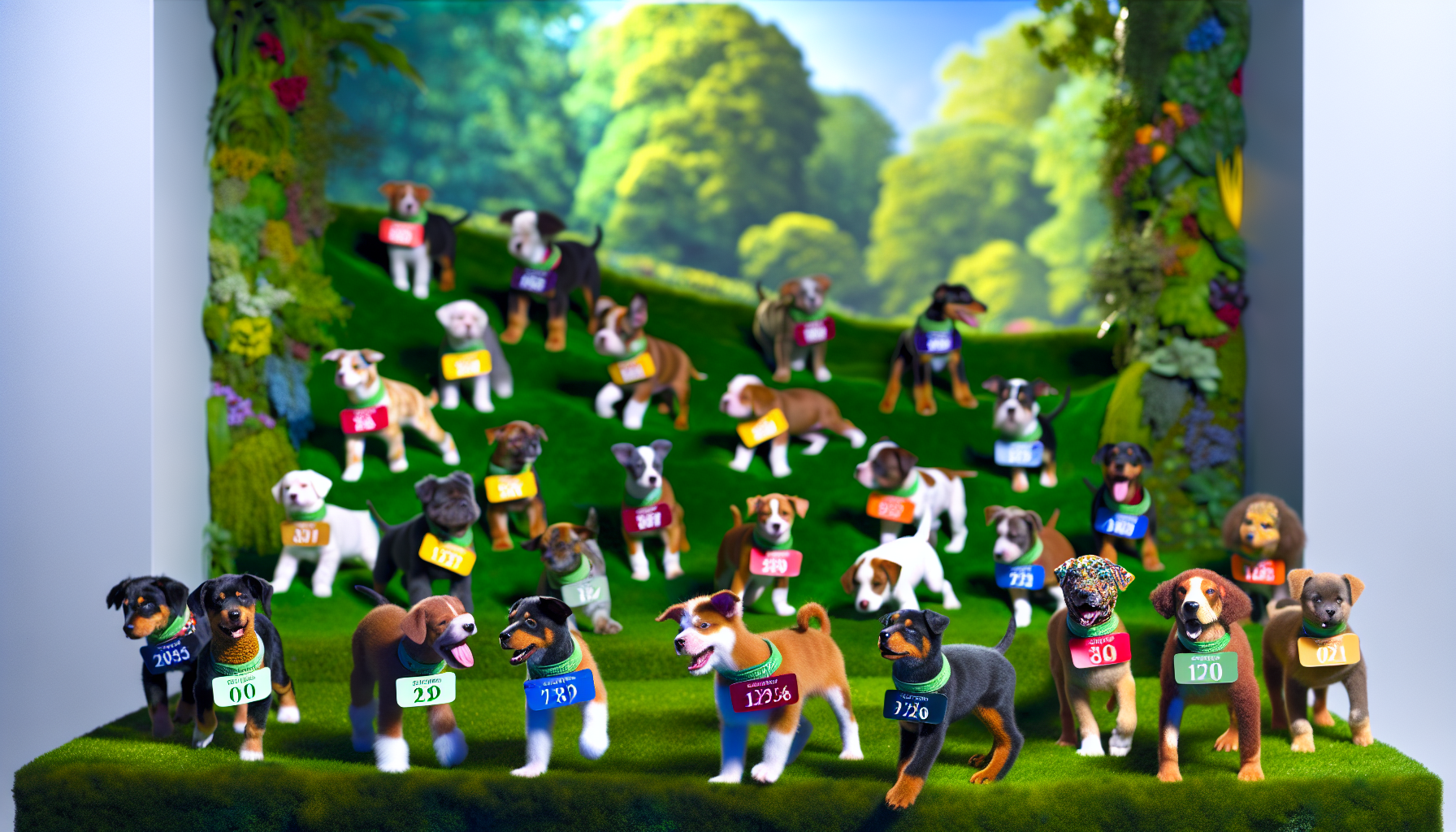
Your dog’s name is more than just a label; it reflects their unique identity and your affection for them. This article explores the art of choosing the best name that resonates with your canine companion while considering trends, meanings, and training ease.
The Influence of Breed, Personality, and Culture
The Influence of Breed, Personality, and Culture is integral to selecting a perfect name for your dog, as it encapsulates more than just a call sign; it signifies your dog’s identity and heritage. For example, breeds like the Akita or Shiba Inu often carry strong, traditional Japanese names that pay homage to their origins. Similarly, a Scottish Terrier may be aptly named after Scottish heroes or landmarks, creating a deep connection to its lineage.
Beyond breed, a dog’s personality is a treasure trove of naming inspiration. A playful, energetic dog could be named “Bolt,” after the swift character from the animated movie, or “Merry,” reflecting a joyful disposition. Conversely, a calm and wise canine may embody a name like “Sage.” These personalized names thrive beyond the generic, fostering a unique bond and understanding between pet and owner.
Cultural references and personal experiences also play a pivotal role. A family with a strong Irish heritage might choose “Aiden,” meaning fiery, while another with a passion for Italian culture could opt for “Bella,” reflecting the beauty they see in their pet. Personal experiences and favorite memories can also steer the naming process. A dog that reminds you of a serene beach vacation might end up with a name like “Coral” or “Marley.”
Understanding the influence of breed, personality, and culture in naming your dog provides a deeper connection to their essence and your shared story. This approach ensures the chosen name is not only distinct but meaningful, fostering a sense of identity and belonging for your furry companion. The acknowledgment of these factors serves as a crucial transition to exploring how societal trends and popular culture further shape dog naming conventions, as discussed in the next chapter, The Popularity Contest.
The Popularity Contest
Building on the thoughtful consideration of a dog’s breed, personality, and cultural significance, the next step in our guide delves into the realm of popular names. Trends in dog naming often reflect the evolving landscapes of popular culture, media, and societal shifts. Names inspired by blockbuster movies, iconic book characters, and celebrity pets often climb the popularity charts, captivating the hearts of dog owners. For instance, names like “Bella” and “Loki” have seen surges in popularity following the success of the “Twilight” saga and the Marvel Cinematic Universe, respectively.
However, the choice between a popular name and a unique one presents an interesting dilemma for dog owners. On one hand, a popular name can provide an instant connection and conversation starter with fellow pet enthusiasts and a sense of belonging to a broader community. It makes it easier for people to remember and pronounce your dog’s name, allowing for smoother social interactions.
On the other hand, a unique name can set your dog apart, giving them a distinct identity that mirrors their unique personality traits or your personal experiences. It reflects a desire to break from the norm and can lead to more personalized interactions. However, it may also come with challenges in terms of pronunciation and recall for others.
Pet experts often site famous literature and cinematic works not only as sources of inspiration but also as testimonies to the timelessness of some names. For instance, names like “Argos,” the loyal dog from Homer’s “Odyssey,” and “Toto” from “The Wizard of Oz,” remain beloved choices that have stood the test of time.
In choosing between a popular and a unique name, it’s crucial to consider your personal connection to the name and how it reflects your dog’s identity. Whether you lean towards a name that tops the popularity charts or one that is one-of-a-kind, the essence is ensuring it resonates with the unique bond you share with your canine companion. This balance between popularity and uniqueness sets the stage for the next chapter, which focuses on names that are not only charming but also optimal for training, highlighting the importance of a name in effective dog communication and behavior management.
Names That Training Experts Recommend
Building on the exploration of popular and unique names, it’s essential to delve into how the effectiveness of a dog’s name extends beyond social recognition and enters the realm of training efficacy. Professional trainers emphasize that the auditory components of a name can significantly influence a dog’s ability to distinguish and respond to commands. Names with sharp consonants and clear vowels are particularly effective. For instance, names that end with a strong note, such as “Max” or “Jack,” tend to grab a dog’s attention more efficiently than softer, more elongated names. The reason lies in the distinct sounds that can pierce through everyday noise, making it easier for the dog to recognize its name as a unique cue.
An ideal name, from a training perspective, should be one or two syllables long. This brevity ensures that the name can be said quickly, a crucial factor in capturing a dog’s attention and maintaining its focus during training sessions. Real-world examples support this theory, with dogs named “Bella” or “Coco” demonstrating swift responsiveness to training cues, contrasted with the diminished attention span observed in dogs with more complex names.
Moreover, trainers advise against names that sound similar to common command words, such as “Kit,” which could be confused with “sit,” to prevent potential training confusion. The aim is to choose a name that stands out as a clear, consistent signal to your dog, thereby reinforcing the training process rather than complicating it. Through understanding these nuances, owners are equipped not just with a name that is affectionately fitting, but one that also fosters an optimal learning environment for their canine companions.
Conclusions
Choosing the perfect name for your dog intertwines with breed characteristics, cultural significance, and the essence of your unique bond. Popular names may come and go, but finding one that suits your dog’s personality and aids in their training will ensure they respond with love and recognition. The right name sets the tone for a harmonious human-pet relationship.







